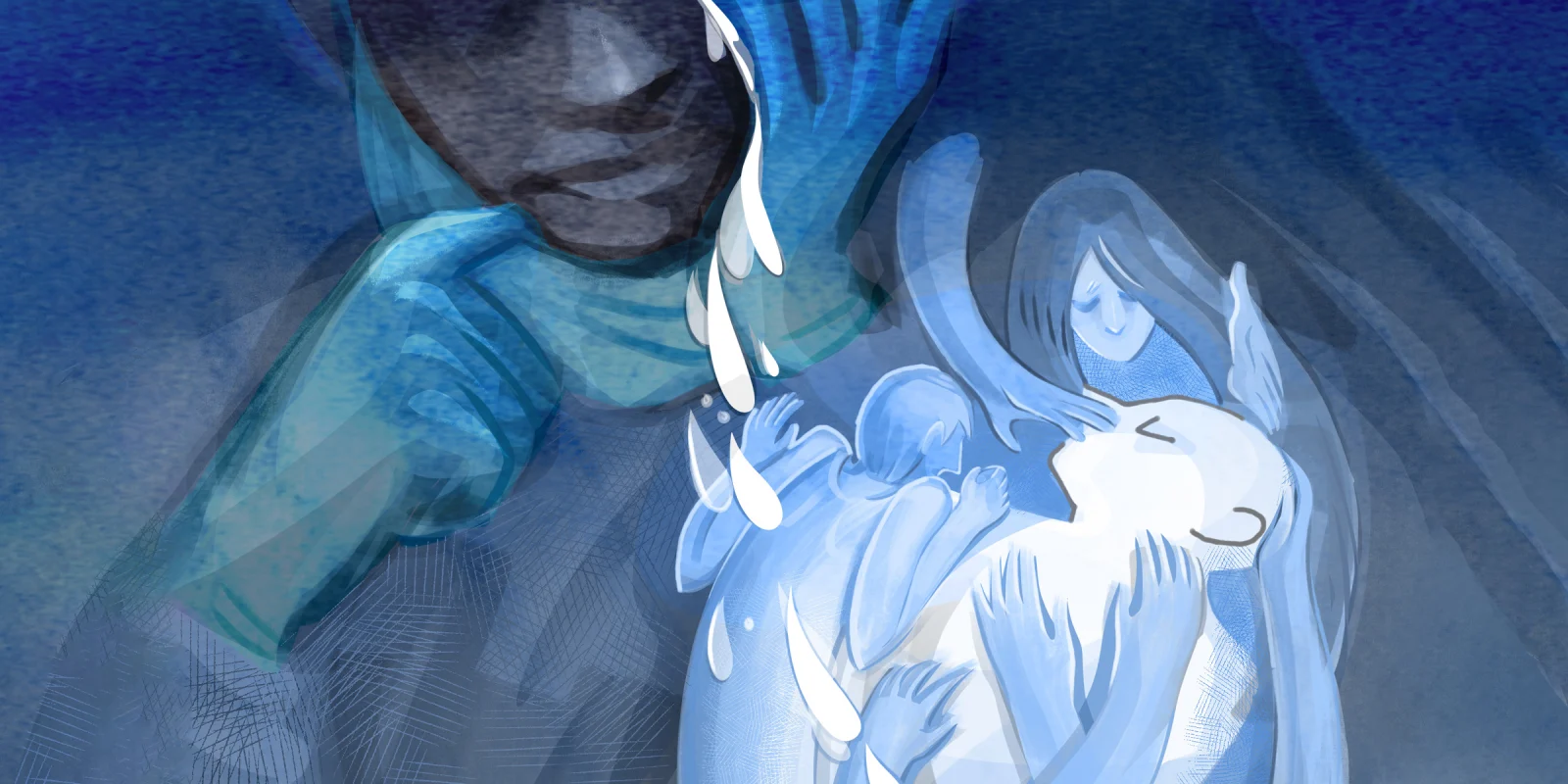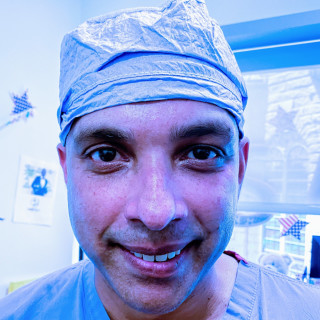I had just finished a grueling orthopaedic residency, yet once again, I was on the run and bearing bad news. I was sprinting from a well-known Mumbai hospital to a nearby hotel room. But this time, the bad news wasn’t for the family of one of my patients; it was for my mother.
Mom looked up as I entered the room. She appeared to be praying silently with the beads of the Holy Rosary trembling in her otherwise rock-steady hands.
“Does the hospital need more cash?” she asked, nodding toward an open briefcase on the bed stacked with high-denomination rupee notes. Like most Indians in the 1990s, we had to pay an advance in cash for treatment in big-city private hospitals and replenish the account when the deposit ran out.
She thought I had come to collect more money. I had come to give her the bad news.
The news that I carried with me followed my sudden exit from my 60-year-old dad’s ICU bedside. He had undergone a cardiac bypass the previous day and was feeling uneasy. Uneasy enough that the Catholic in him asked for a priest to administer the last rites. I reassured him that he was going to be fine. Nevertheless, I found a church nearby and a priest who was kind enough to drop everything and walk back to the hospital with me. I laughed through my nervousness, “My dad is a very anxious man — so much for the steely confidence of a surgeon undergoing surgery!”
Father Barbosa nodded understandingly. “He will feel better after I pray with him.” We all prayed together by his bedside, and the priest anointed my dad’s forehead with holy oil.
Dad and I were big fans of trivia about famous last words and quotes, and our final exchange would have been more poignant had we known what was to follow. “Dad, I am going to walk Father Barbosa to the hospital entrance and will be back soon.”
He nodded, “I will be waiting.”
Did he not wait long enough, or did I not come back soon enough? A question that constantly gnaws at my soul, the answer to which my heart is better off not knowing.
All I know is that when I returned to my dad’s hospital room, I walked into the all-too-familiar hell that breaks loose when a soul in hospital threatens to leave this world. Where a storm of monitors triggers circumferential waves of quick-thinking human activity around a patient’s bed.
One of these humans was a young ICU resident who, two hours prior, had taken me aside and said, “We have run all the tests. Everything seems fine. I think your dad is a little anxious.” Now it was she who looked more than a little anxious.
The surgeon in me wanted to stay, but the son in me took over, and I began my lonely run back to the hotel.
I burst into the hotel room to break the news. Deep down inside, I knew Dad had passed away, but my words came out clothed in a white coat, “Mom, Dad’s condition suddenly got critical.”
Her eyes widened in shock. “Oh my God,” she gasped.
I pushed on, “I hope to God he makes it.” My stricken face gave my words away.
As a physician herself, she did not need a bad news translator. They say surgeons don’t cry. We both did — not just because another surgeon died but because a husband and father had.
It all began with my otherwise asymptomatic dad consulting a doctor for throat burn from eating spicy food. This seemingly innocuous decision put him on a cascading investigative path where an EKG led to a stress test that led to an angiogram. Based on the test results, cardiac bypass surgery was recommended. However, my dad wanted to have a balloon angioplasty, as he did not want his “chest split open.” The irony was not lost on me that surgeons are as afraid of surgery as everyone else. Perhaps even more so.
Dad found a prominent interventional cardiologist of unquestionable technical skill who performed the balloon angioplasty. The procedure resulted in an ischemic episode necessitating an emergency bypass by one of India’s foremost cardiac surgeons. And here we were.
I have often wondered how the cardiac surgeon mentally processed my Dad’s death. All surgeons know the pain of having hurt someone we are trying to heal. We talk about our complications with our colleagues like we would talk with a close friend about a breakup or a death in the family. We are always deeply torn inside and wondering what we could have done differently and better! I think of that resident sometimes — the one who called him anxious two hours before he died. Just as I learned something, I hope she did too. The wisdom that she will pass on to her students and that her patients will benefit from.
There is a public perception that we surgeons think we are God, and we are ridiculed for it. But when faced with a complication, that is the one time we wish that we were a deity gifted with the power to change the course of events.
To our family of mortal surgeons, a well-intentioned system filled with kind and knowledgeable professionals delivered a death by a thousand cuts. We learned that when we are cut, we bleed just like everyone else.
And I learned that a knife that carves your or your kin’s body could also reshape your thinking and change your process of decision-making. It certainly did mine and made me more thoughtful whenever the opportunity arose to use a knife. The timing of this tragedy could not have been worse for my family, while in a perverse way, beneficial for my future patients. Having recently completed my orthopaedic residency, I now sat atop the decision-making tree that controlled life and limb, where the labor of planning, precision, and love could still yield the bitter fruit of failure.
Like every surgeon, Dad was no stranger to that experience in his professional life. For his surgeon son and spouse, this was further reinforced by his death.
Some of us surgeons believe in the afterlife. I do. And I hope my dad is listening in when I say, “Dad, I learned a lot in medical school and residency. I learned even more about what it means to be a doctor when you were alive, but sadly, I learned the most from your death. Wherever you are, I want you to know that by constantly endeavoring to do the right thing by the patient, I am doing the right thing by you.” I know I will not always get it right, but it will never stop me from trying.
Have you lost a loved one to a medical complication? Share how it impacts your patient care in the comments.
Gleeson Rebello, MD, is a pediatric orthopaedic surgeon at Massachusetts General Hospital and Harvard Medical School. He is the songwriter for the band “The Fever Breakers.” Author of children’s books "DareBones Big Break" and "Joe Some-More: The Boy Who Lost a Lot and Won Big."
Illustration by April Brust







